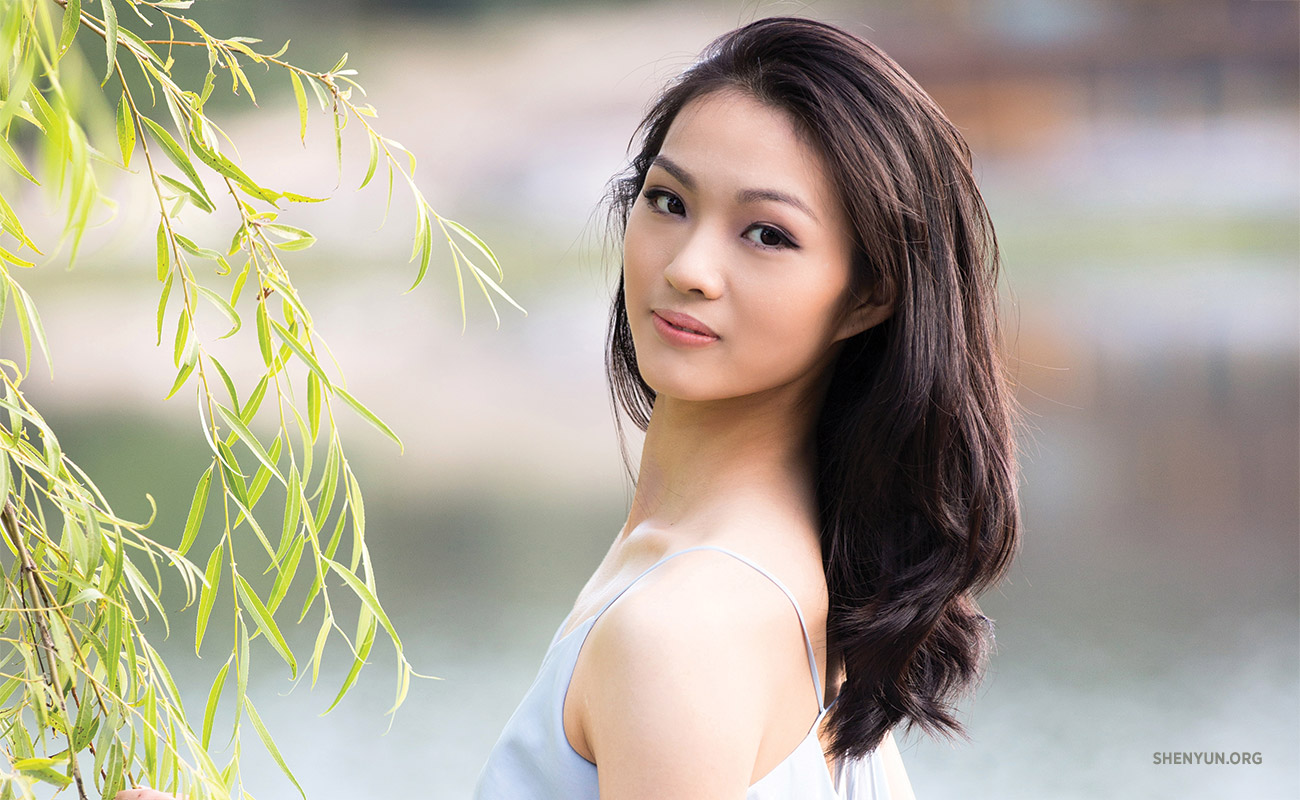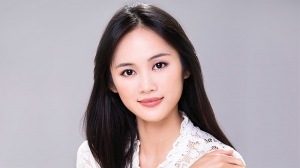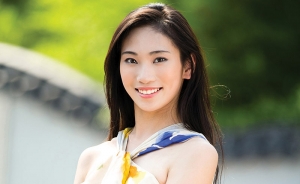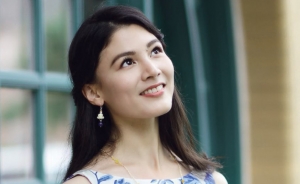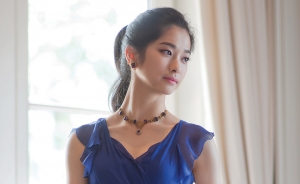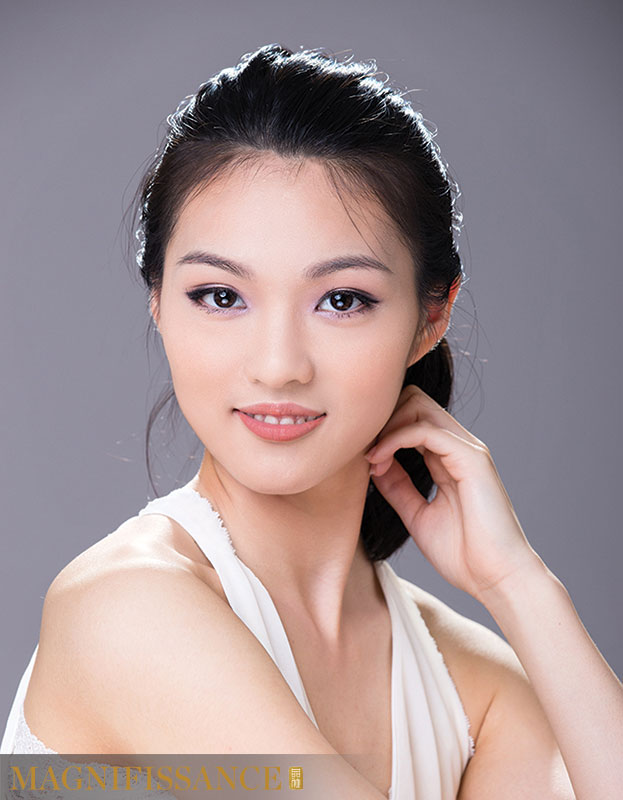
Magnifissance is France and Canada's leading bilingual luxury lifestyle magazine in Chinese and English, dedicated to bridging East and West through a shared appreciation for the beauty and elegance rooted in both traditions.
In this past issue, Magnifissance featured Shen Yun principal dancer Evangeline (Eden) Zhu. Zhu has been with Shen Yun since 2013. In 2014 and 2016, she won first place in New Tang Dynasty Television’s International Classical Chinese Dance Competition (junior and senior division respectively). Zhu is touring with Shen Yun New York Company across North America and Europe this season.
From Magnifissance’s A Goddess Within
Evangeline Zhu grew up in China surrounded by traditional culture — but only after coming to the United States did she grasp the deeper meanings hidden within it.
In 2014, at an international dance competition in New York City, hundreds of pairs of eyes were fixed eagerly on the figure of Evangeline Zhu, standing alone on the stage under a spotlight. She had a choice: how to play Chang’e?
Chang’e is a goddess, and the story of her and her husband, Hou Yi, is about as well known in China as Romeo and Juliet in the West. Hou Yi, though not a god, had great abilities. He saved the world by shooting down with his bow and arrow nine suns that were burning the lands, winning him widespread respect and adoration.
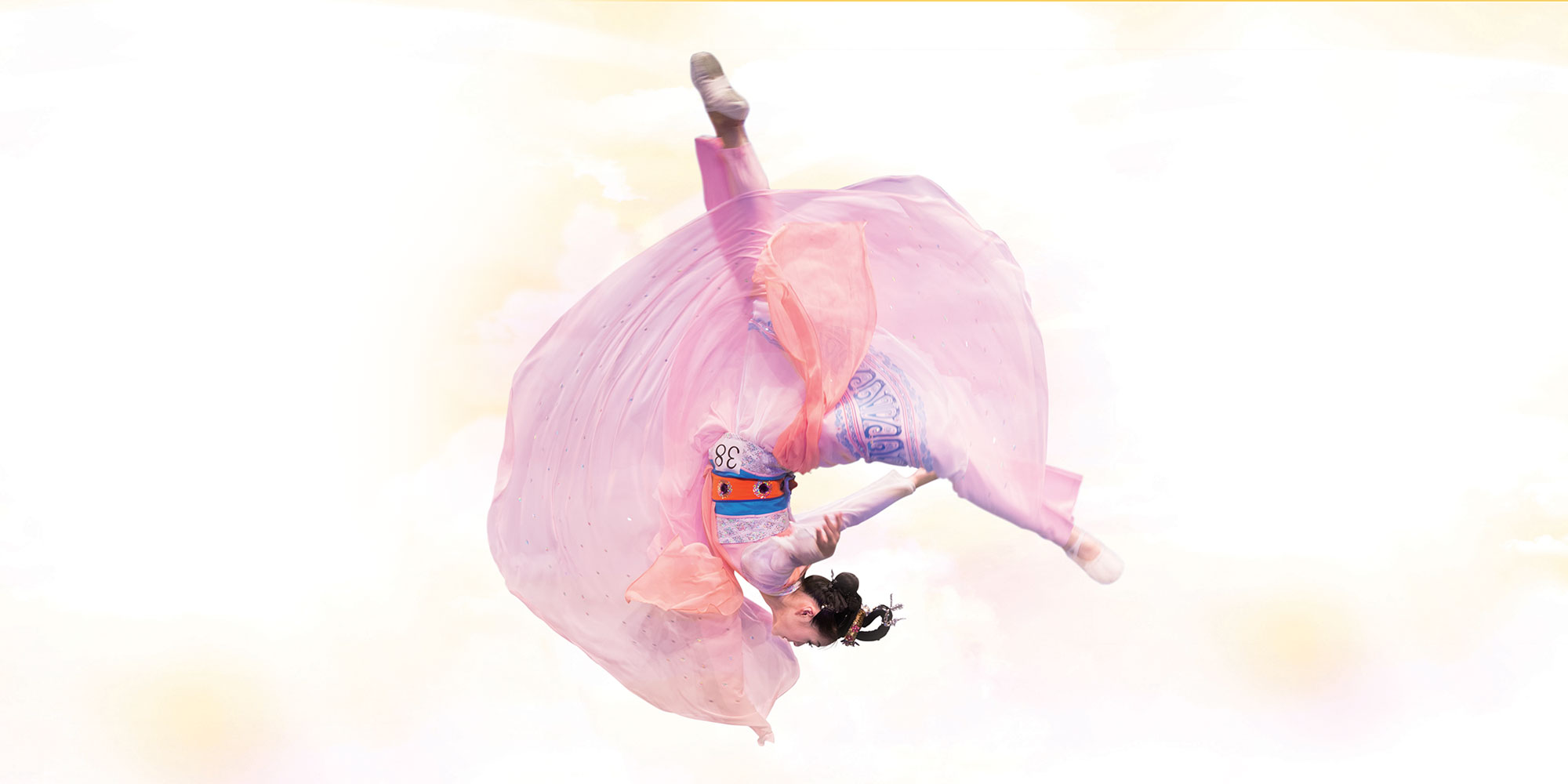
In the fable, Chang’e drinks an elixir of immortality and flies to the moon (a metaphor for Heaven), leaving her husband on earth.
But interpretations differ on just why Chang’e drank the potion.
In China, Zhu was taught that Chang’e drank it to prevent one of Hou Yi’s disciples from stealing it.
After Zhu left China, her new teachers gave her another explanation for why Hou Yi was prevented from ascending to Heaven with his wife: his pride.
This, Zhu says, was “a more interesting interpretation.” Hou Yi’s arrogance meant he had no place in Heaven — the gods reward character, not achievement. So Chang’e returned alone.
The two different versions might have remained in the realm of Zhu’s philosophical musings, except for the fact that she needed to know how she ought to dance: like a wife jealously guarding the magical potion of her husband, or like a divine being about to return to Heaven, lamenting the weaknesses that keep men chained to their mortal coils.
“At first, I didn’t understand her mindset,” says Zhu in an interview with Magnifissance, reliving her perplexity. “After I found out the true meaning of the story, in that performance I could very clearly express it through my movements.” In her dance, Zhu portrayed the ache of Chang’e returning alone.
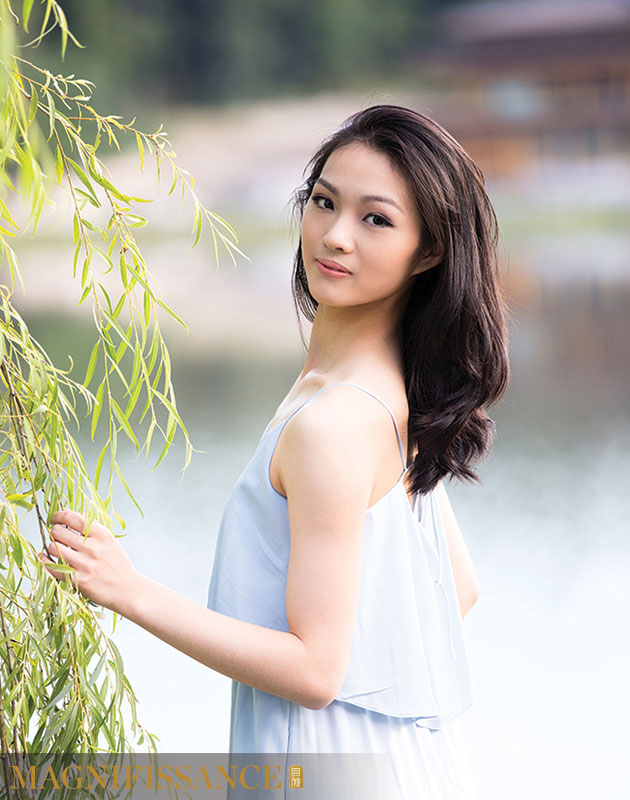
A Girl named Evangeline
Zhu has been a dancer with Shen Yun Performing Arts since age 14. It is the only dance company in the world that has made its mission the revival of traditional Chinese culture, which embodies divine grace in the human world.
Though she grew up in a household steeped in the arts — she was taught piano from age 5, and began her training in dance soon after — Zhu says that it was only after moving from China to the United States that she grasped the deeper meaning of the culture that had surrounded her since youth.
In New York, among like-minded peers, she discovered that her culture’s inner secrets were about moral elevation, living a life of virtue — not the showiness that is often presented today.
When Zhu trains and performs, she connects with the profundity of the old folk tales that are passed down.
From the heart
Classical Chinese dance, Zhu explains, has the phrase: “Start from the heart, bring out from the core.” It means that once a performer knows what she wants to express, she begins from the core of her body and transforms her thoughts into dance movements. This is why Zhu needed clarity on just what drove Chang’e.
Zhu’s journey into the heart of her culture has brought her to the realization that her thoughts should be built on a foundation of goodness. “Our classical Chinese teacher teaches us that if one wants to do great things, three conditions are needed: the mandate of heaven, virtuous conduct, and talent.” The sense that her destiny is arranged, and that doing her job well means acting with virtue wherever she goes, now guides her life.

She says this spiritual reservoir has been neglected in her homeland. “‘Benevolence, righteousness, propriety, wisdom and trust,’” classical Confucian virtues, widely-known in China, “may still be written in the textbooks, but modern Chinese people don’t really recognize the values of traditional culture.”
Her new understanding of the legend of Chang’e led Zhu to rethink everything she thought she knew about Chinese culture.
The modern Chinese education system regards China’s traditions, such as belief in the existence of gods and heaven, as “feudal superstition,” she says. And while ancient China is often portrayed as bleak, hopeless, and an oppressive and backward society just waiting for revolution, Zhu begs to differ, having discovered a colorful and diverse society in the pages of literature.
“Contrary to what I was taught in school, the ancients passed to us so much wonderful heritage,” she said, referring in part to artists such as Wang Xizhi, with his calligraphic poems. It was said that he and 42 of his learned peers would compose poetry while engaging in a race-against-the-clock drinking contest. His “Preface to the Poems Collected from the Orchid Pavilion,” remains one of China’s most revered pieces of writing and is copied by aspiring calligraphers to this day.
It is this celebration of cultural legacy that Shen Yun’s dancers and expressive East-meets-West-style orchestra bring to life with grace, humanity, and humor, Zhu feels.
She is honoured, she said, to be among talented and dedicated colleagues. “When we’re onstage dancing in locations around the world, I feel a very righteous, very pure energy that is incomparably strong. I want to pass on this power to everyone.”


